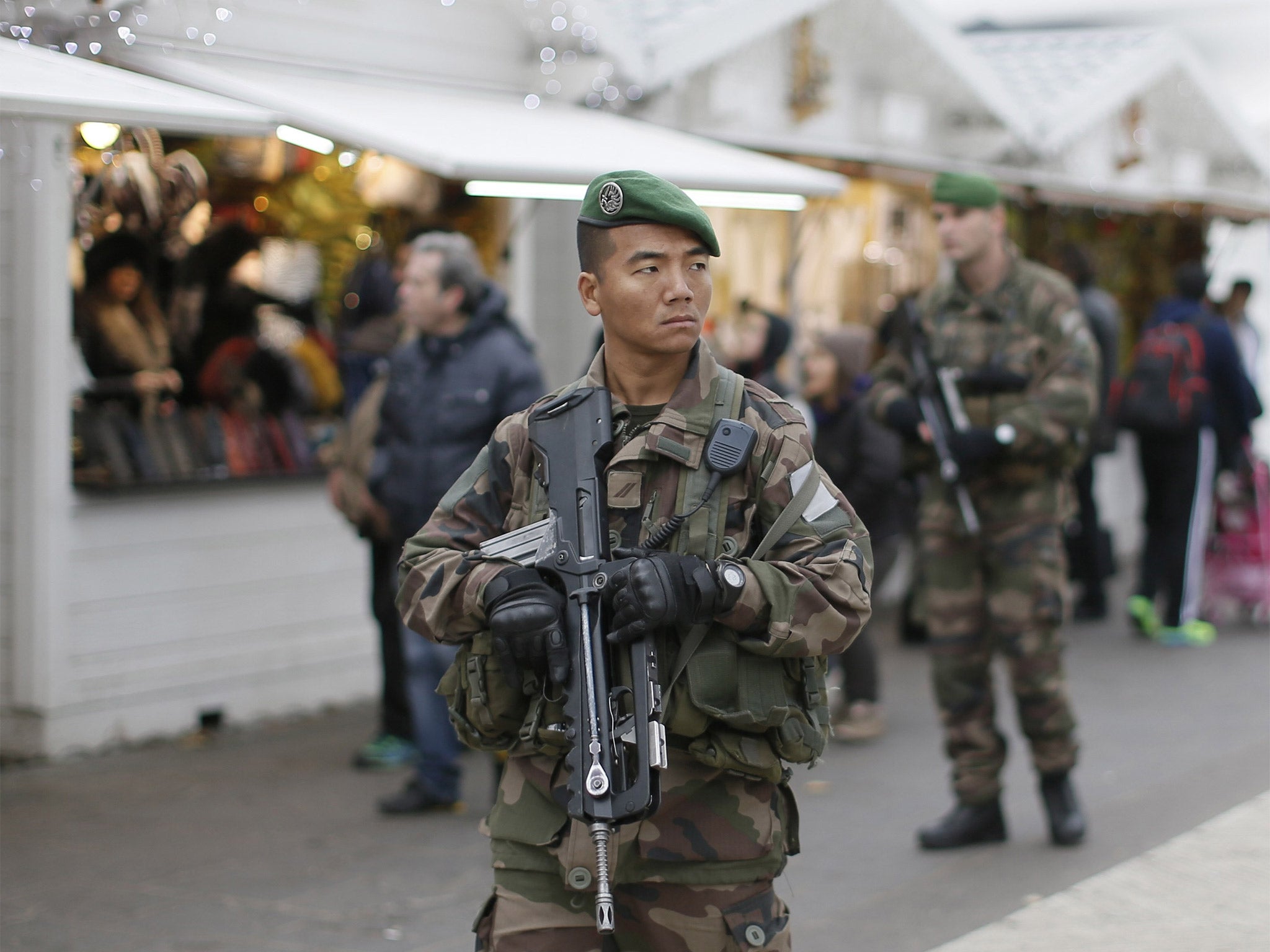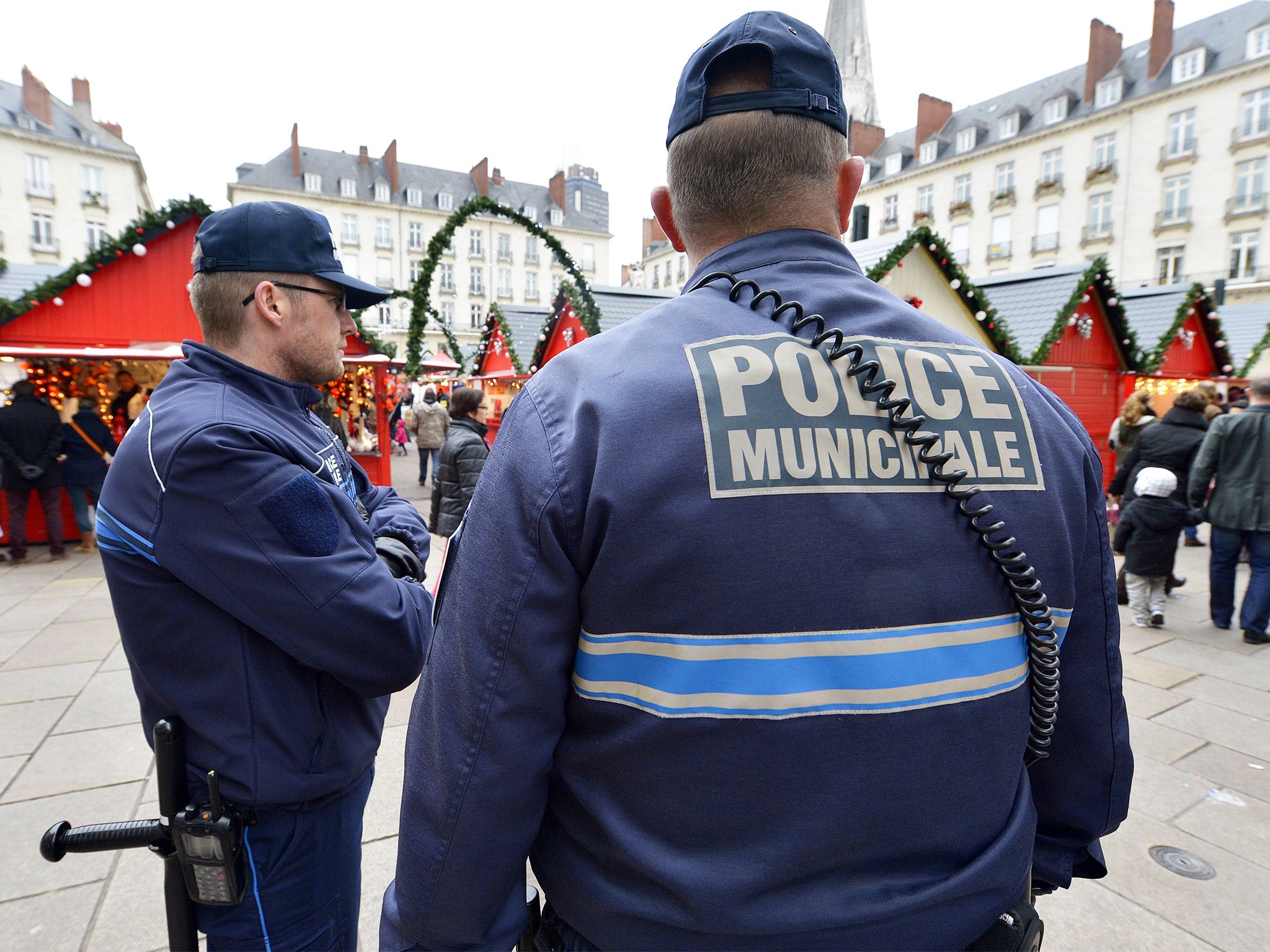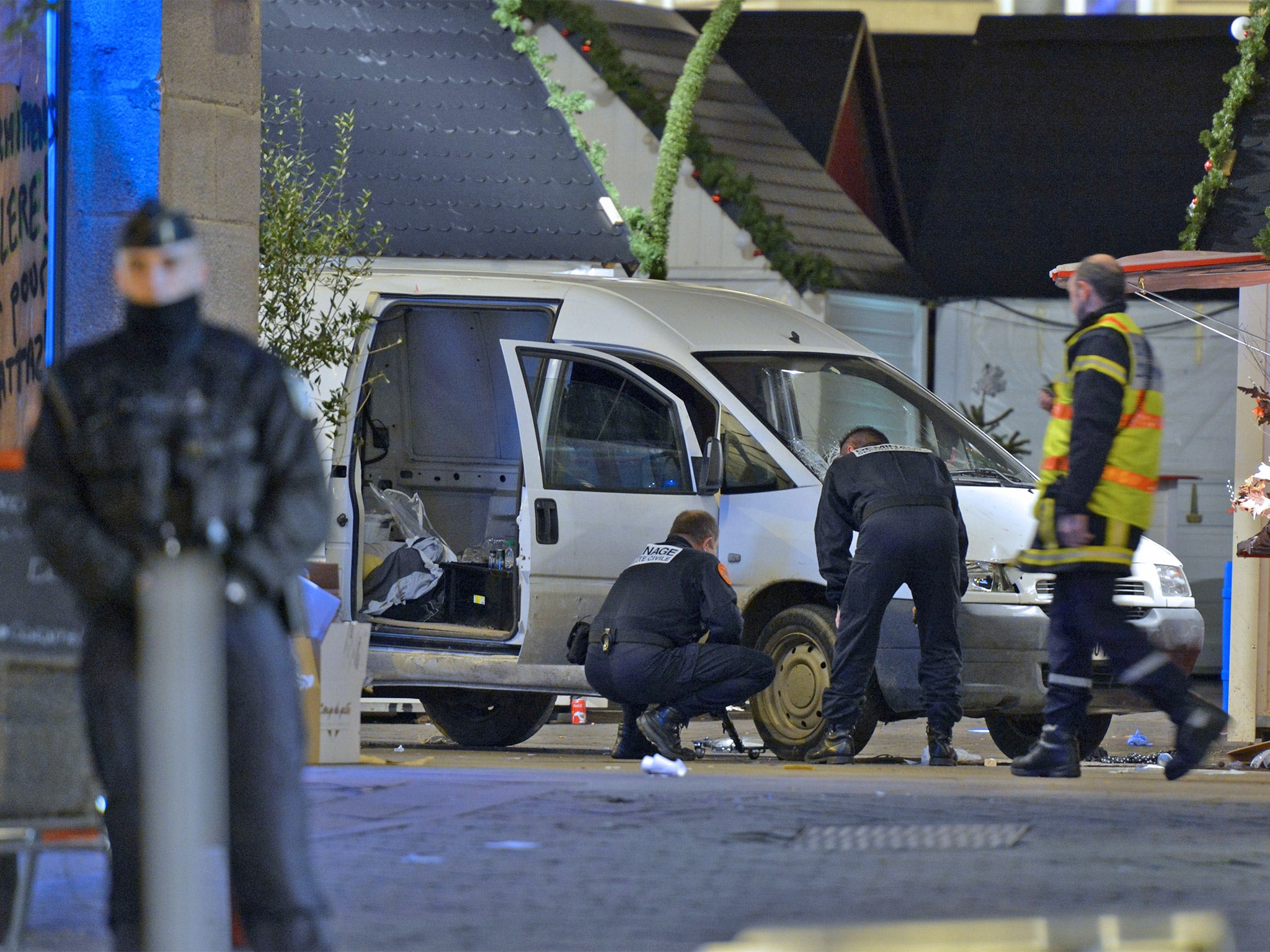France gripped by fear at Christmas after third street attack in three days
After three attacks in quick succession – causing two deaths and 23 injuries – armed patrols have been deployed

Your support helps us to tell the story
From reproductive rights to climate change to Big Tech, The Independent is on the ground when the story is developing. Whether it's investigating the financials of Elon Musk's pro-Trump PAC or producing our latest documentary, 'The A Word', which shines a light on the American women fighting for reproductive rights, we know how important it is to parse out the facts from the messaging.
At such a critical moment in US history, we need reporters on the ground. Your donation allows us to keep sending journalists to speak to both sides of the story.
The Independent is trusted by Americans across the entire political spectrum. And unlike many other quality news outlets, we choose not to lock Americans out of our reporting and analysis with paywalls. We believe quality journalism should be available to everyone, paid for by those who can afford it.
Your support makes all the difference.France is torn between fear and incomprehension.
Even as the government called for “calm, unity and vigilance” yesterday, reinforced armed patrols took to the streets after three random knife attacks on police and pedestrians in three days.
At least two of the attacks – which have led to two deaths and 23 injuries – are believed to have been irrational acts by disturbed individuals. Nonetheless, France fears a wave of copy-cat violence over the Christmas holidays.
President François Hollande appealed for calm and insisted that there was no reason to suspect that the incidents were connected. A van driver deliberately ploughed into shoppers at a Christmas market in Nantes on Monday night, injuring 10 people. It was announced last night that one of the victims had died.
The driver, who stabbed himself in the chest 13 times after the attack, was identified as a 37-year-old white Frenchman, with a history of petty crime, alcoholism and psychological problems.
A similar attack on pedestrians in Dijon 400 miles away on Sunday night was carried out by a 40-year-old Frenchman of Arab origin with a long history of mental health troubles.
Authorities now believe that the second incident was inspired by the first and that neither of them had political or religious motives. “What we are seeing with the events in Dijon and Nantes is a copy-cat reaction,” said the Prime Minister Manuel Valls.
He dismissed all links with a savage knife attack on a police station near Tours in central France on Saturday evening. In that incident, a 20-year-old Frenchman of African origin – a recent convert to Islam – was shot dead after slashing three police officers with a foot-long knife.
In both the Dijon and the Tours incidents, the attacker is reported to have shouted “Allahu akbar” (God is great).
The assault on the police station is being treated as an isolated attack with possible terrorist overtones, carried out by a disturbed individual. The Dijon attack, in which 11 pedestrians were injured, has been declared by the local prosecutor to be a “non-terrorist” act by a “confused” man who has made 157 visits to psychiatric units in the last 13 years.
In what may have been a “revenge” attack by far-right activists, a car rammed the main gate of a mosque in Strasbourg in the early hours of yesterday. Police fear that the raid might have been carried out by activists convinced – despite official denials – that France was under “Islamist attack”.
Shots were also fired at a synagogue in Paris and a heavily armed man was arrested on the streets of Cannes yesterday. There was no immediate reason to connect either event with the three incidents in Nantes, Dijon and Tours.
The Socialist-led government called for calm and insisted that the events should be treated separately. Mr Valls said such a “series of dramas” was “disturbing” but there was no cause for “panic”. He announced that an extra 300 soldiers would be deployed to strengthen the armed, military and police patrols which have protected city centres for the last 20 years.

The far-right political leader Marine le Pen had earlier accused the government and media of deliberately “minimising” the first two incidents which she described as Islamist “terrorist attacks”. Ms Le Pen was silent about the third incident on Monday night in which the man, with no known political or religious affiliations, drove his van into Nantes’ crowded Christmas market.
The man, identified only as “Sébastien S”, stabbed himself repeatedly with a kitchen knife after the attack and was seriously ill in hospital last night. Police believe that he may have been influenced by the constant repetition of the previous day’s Dijon attack on 24-hour news channels.
In the face of this cascade of incidents, the French media has been torn between hysteria and appeals for calm.

The newspaper Le Parisien carried a banner front-page head-line yesterday “Peur sur Noel” (“Fear at Christmas”). The newspaper said that it was irrelevant whether the attacks were a “low-cost” terrorist campaign or a series of random acts by disturbed individuals. Either way, they were terrifying because they were unpredictable and impossible for the authorities to forestall.
The centre-right newspaper Le Figaro bundled the Tours and Dijon attackers together as the work of “fous de Dieu” (religious crazies) – despite the insistence of the local prosecutor, Marie-Christine Tarrare, that the Dijon attack was not motivated by politics or religion. Ms Tarrare said that the attacker – identified only as “Mohammed” –told investigators that he had shouted “Allahu akbar” to “give himself courage”.
She said that he had spoken “incoherently” to investigators of taking revenge for “Chechen and Palestinian children”. He was a man with a lengthy history of psychiatric treatment who had no links or sympathies with extremist Islamist groups.
The young man who attacked the suburban police station near Tours on Saturday is proving more difficult for investigators to define. Bertrand Nzohabonayo, 20, born in Burundi, converted to Islam two years ago. He is described by his parents and friends as a gentle, depressive, sporty man who – unlike his radical brother – had no known interest in jihadist movements. Investigators found, however, that he had posted the Isis flag on his Facebook site two days before his attack.
Join our commenting forum
Join thought-provoking conversations, follow other Independent readers and see their replies
Comments